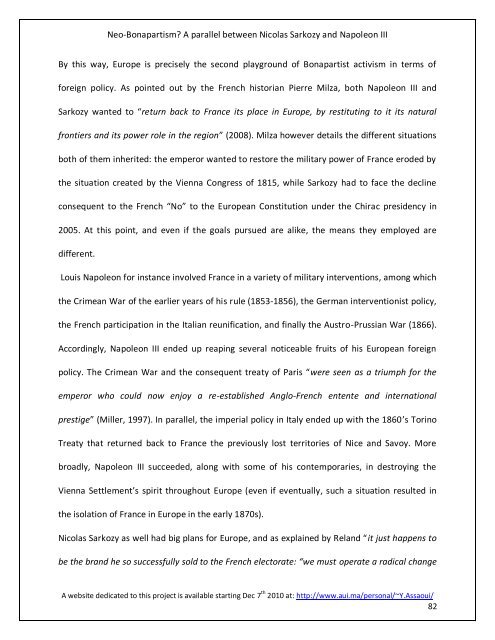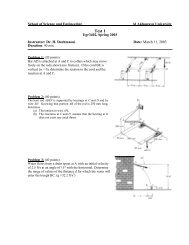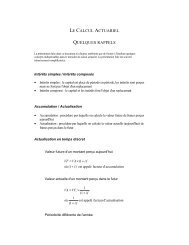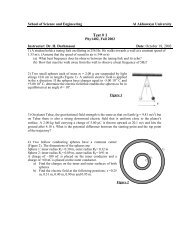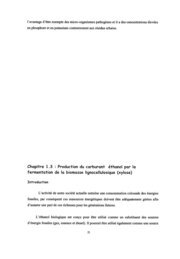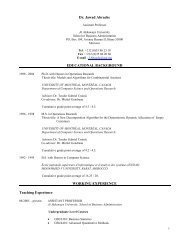Neo-Bonapartism? A parallel between Nicolas Sarkozy and ...
Neo-Bonapartism? A parallel between Nicolas Sarkozy and ...
Neo-Bonapartism? A parallel between Nicolas Sarkozy and ...
You also want an ePaper? Increase the reach of your titles
YUMPU automatically turns print PDFs into web optimized ePapers that Google loves.
<strong>Neo</strong>-<strong>Bonapartism</strong>? A <strong>parallel</strong> <strong>between</strong> <strong>Nicolas</strong> <strong>Sarkozy</strong> <strong>and</strong> Napoleon III<br />
By this way, Europe is precisely the second playground of Bonapartist activism in terms of<br />
foreign policy. As pointed out by the French historian Pierre Milza, both Napoleon III <strong>and</strong><br />
<strong>Sarkozy</strong> wanted to “return back to France its place in Europe, by restituting to it its natural<br />
frontiers <strong>and</strong> its power role in the region” (2008). Milza however details the different situations<br />
both of them inherited: the emperor wanted to restore the military power of France eroded by<br />
the situation created by the Vienna Congress of 1815, while <strong>Sarkozy</strong> had to face the decline<br />
consequent to the French “No” to the European Constitution under the Chirac presidency in<br />
2005. At this point, <strong>and</strong> even if the goals pursued are alike, the means they employed are<br />
different.<br />
Louis Napoleon for instance involved France in a variety of military interventions, among which<br />
the Crimean War of the earlier years of his rule (1853-1856), the German interventionist policy,<br />
the French participation in the Italian reunification, <strong>and</strong> finally the Austro-Prussian War (1866).<br />
Accordingly, Napoleon III ended up reaping several noticeable fruits of his European foreign<br />
policy. The Crimean War <strong>and</strong> the consequent treaty of Paris “were seen as a triumph for the<br />
emperor who could now enjoy a re-established Anglo-French entente <strong>and</strong> international<br />
prestige” (Miller, 1997). In <strong>parallel</strong>, the imperial policy in Italy ended up with the 1860’s Torino<br />
Treaty that returned back to France the previously lost territories of Nice <strong>and</strong> Savoy. More<br />
broadly, Napoleon III succeeded, along with some of his contemporaries, in destroying the<br />
Vienna Settlement’s spirit throughout Europe (even if eventually, such a situation resulted in<br />
the isolation of France in Europe in the early 1870s).<br />
<strong>Nicolas</strong> <strong>Sarkozy</strong> as well had big plans for Europe, <strong>and</strong> as explained by Rel<strong>and</strong> “it just happens to<br />
be the br<strong>and</strong> he so successfully sold to the French electorate: “we must operate a radical change<br />
A website dedicated to this project is available starting Dec 7 th 2010 at: http://www.aui.ma/personal/~Y.Assaoui/<br />
82


